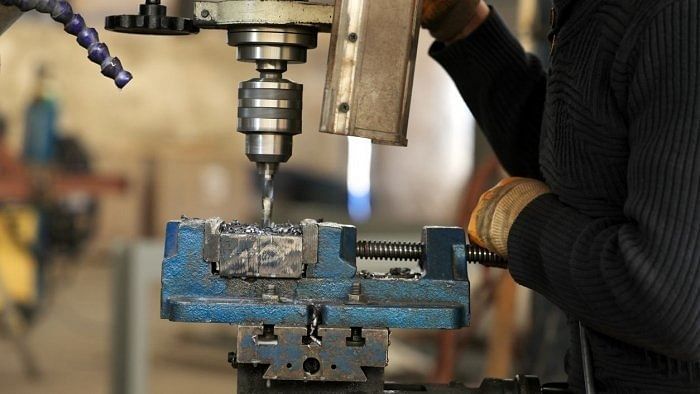
India's factory activity contracted for the first time in almost a year in June as restrictions to contain the deadly second wave of the coronavirus triggered declines in demand and output that pushed firms to cut more jobs, a private survey showed on Thursday.
Although many states have recently relaxed some containment measures following a decrease in daily cases the rapid emergence of the new Delta Plus variant has raised concerns over the nation's already weak economic outlook.
The Nikkei Manufacturing Purchasing Managers' Index , compiled by IHS Markit, declined to an 11-month low of 48.1 in June from May's 50.8, moving below the 50-level separating growth from contraction.
"The intensification of the Covid-19 crisis in India had a detrimental impact on the manufacturing economy," said Pollyanna De Lima, economics associate director at IHS Markit.
"Out of the three broad areas of the manufacturing sector monitored by the survey, capital goods was the worst-affected area in June. Output here declined at a steep rate due to a sharp fall in sales."
As overall demand and output shrank in June for the first time in 11 months, manufacturing firms extended their record job cutting spree, albeit at a slower pace.
The survey, conducted before Finance Minister Nirmala Sitharaman's announcement of additional fiscal support on Monday, also showed optimism about the year ahead declined to its lowest since July 2020.
"Companies became increasingly worried about when the pandemic will end, which resulted in downward revisions to output growth projections. As a result of subdued optimism, jobs were shed again in June," De Lima said.
Despite a sustained rise in input costs, firms increased output prices at a slower rate last month to attract demand.
However that may not be enough to significantly soften a surge in overall inflation, which hit a six-month high in May. A jump in input costs due to a strong increase in energy and commodity prices pushed wholesale price inflation to its strongest in at least 15 years.
Still, the Reserve Bank of India, which in April cut its growth forecast for this fiscal year to 9.5% from 10.5%, was not expected to hike its key interest rates anytime soon as the primary focus remains on boosting economic growth.